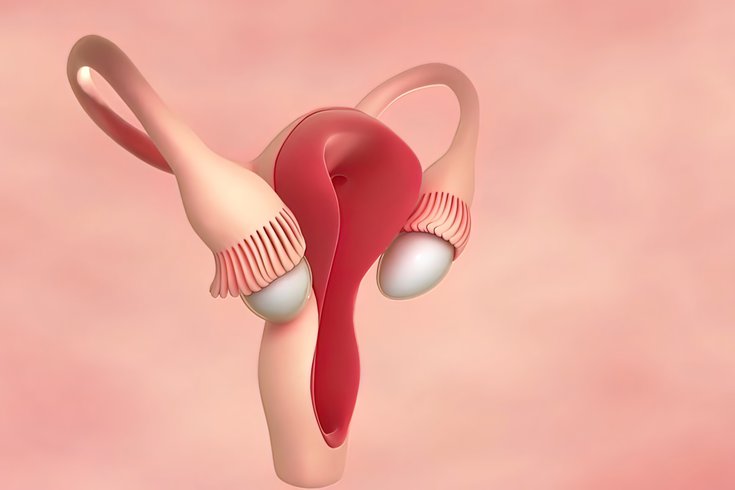
March 03, 2023
 Source/Image licensed from Ingram Image
Source/Image licensed from Ingram Image
Ovarian cancer often begins in the fallopian tubes. Because there is no effective screening method for the disease, several cancer centers are now recommending more women have their fallopian tubes removed after their childbearing years are over.
Because there is no effective screening method to catch ovarian cancer at an early stage, most diagnoses occur when the cancer has reached its later stages. As a result, only about half of women with ovarian cancer reach the five-year survival mark.
But one large study found that even when ovarian cancer is diagnosed early, its death rate is not reduced because it is so aggressive. Even when women were diagnosed 18 months before symptoms began, it had little effect on survival rates.
In the last month, several physician groups have recommended that more women have their fallopian tubes removed, an effort to reduce the number of women dying from ovarian cancer. Ovarian cancer often begins in the fallopian tubes – the long, slender tubes that connect the ovaries to the uterus.
In the past, doctors have recommended women at higher risk for ovarian cancer consider having their fallopian tubes removed if they were undergoing another gynecological procedure, such as a hysterectomy, tubal litigation to prevent pregnancy or the removal of cysts or fibroids.
Now, the recommendation for a salpingectomy may be given to women of average risk who have turned 40 and their childbearing years are over.
Five major cancer centers have formed an initiative called Break Through Cancer to find new ways to prevent and treat the four deadliest cancers, which includes ovarian cancer. An estimated 13,270 women will die of ovarian cancer this year, according to the American Cancer Society.
One of the preventative strategies these cancer centers are promoting is fallopian tube removal. Once the tubes are removed, they can be examined to see if there are early signs of cancer.
"Removing the fallopian tubes is proven to be a safe addition to a hysterectomy, because the amount of time it takes to do a removal of the fallopian tubes is really a couple of minutes," Dr. Michael Worley, director of ovarian cancer surgery at Brigham and Women's Hospital and the Dana-Farber Cancer Institute in Boston, told STAT.
The Ovarian Cancer Research Alliance, an ovarian cancer research organization, also is advising fallopian tube removal for anyone "undergoing pelvic surgeries for benign condition." They released the new guidance in late January.
The Society of Gynecologic Oncology also has endorsed this new recommendation, The Washington Post reported. In years past, the society and the American College of Obstetricians and Gynecologists have released their own guidelines suggesting that the removal of fallopian tubes could be an effective way to decrease the risk of ovarian cancer.
Sarah DeFeo, chief program officer with Ovarian Cancer Research Alliance, told the newspaper that many women may not know the procedure is available to them – despite increasing awareness about its benefits among the medical community.
"Right now, a lot of women have never heard of this, so they're just relying on their provider to bring it up," DeFeo said. Increasing awareness of the procedure gives women an opportunity to bring it up to their doctors on their own.
Women with breast cancer, family histories of ovarian cancer or endometriosis are known to have a higher risk of ovarian cancer, but many women get it without having any known risk factors. The American Cancer Society estimates that about 1 in 78 women develop ovarian cancer.
There hasn't been much research on the effectiveness of fallopian tube removal to reduce cancer risk, but one Canadian study, released last year, offered some promising data. Of nearly 26,000 women who had their tubes removed, either instead of tubal litigation or in addition to a hysterectomy, there were no cases of the most deadly type of ovarian cancer, epithelial ovarian cancer.
Recovery from the procedure ranges from a few days to two weeks, but when it is coupled with another procedure, the recovery timeline varies depending on how complicated the primary surgery was. Women still menstruate after their fallopian tubes are removed.
The removal of both the ovaries and the fallopian tubes offers better risk reduction for women at high risk for ovarian cancer, but some physicians consider the removal of just the fallopian tubes to be a moderate option for women who want to reduce their risk.
"Ovarian cancer is a relatively rare disease, and typically, we don't message to the general population," Audra Moran, president and chief executive of Ovarian Cancer Research Alliance, told The New York Times in February. "We want everyone with ovaries to know their risk level and know the actions they can take to help prevent ovarian cancer."